The University of Chicago Press, Chicago 60637
Oxford University Press. Great Claredon Street, Oxford ox2 6DP
All rights reserved. Published in Great Britain by Oxford University Press in 2001
Published in the United States of America by The University of Chicago Press in 2001
Paperback edition 2002
David Garland 2001
Printed in the United States of America 19 18 17 16 15 14 13 12 11 10 7 8 9 10 11
ISBN-13: 978-0-226-19017-4 (e-book) ISBN-13: 978-0-226-28384-5 (paper) ISBN-10: 0-226-28384-4 (paper)
Library of Congress Cataloging-in-Publication Data Garland, David.
The culture of control: crime and social order in contemporary society / David Garland.
p. cm.
Includes bibliographical references and index.
1. Criminal justice, Administration ofUnited States. 2. Crime preventionUnited States. 3. Criminal justice, Administration ofGreat Britain. 4. Crime preventionGreat Britain. I. Title.
HV9950.G36 2001 364.973dc21 00-051209
ISBN: 0-226-28383-6 (cloth : alk. paper) ISBN: 0-226-28384-4 (paperback)
 This paper meets the requirements of ANSI/NISO Z39.48-1992 (Permanence of Paper).
This paper meets the requirements of ANSI/NISO Z39.48-1992 (Permanence of Paper).
The Culture of Control
Crime and Social Order in Contemporary Society
DAVID GARLAND
The University of Chicago Press
For Kasia and Amy
And for Anne
As always
Preface
This book is about the culture of crime control and criminal justice in Britain and America. Or, to be more precise, it is about the dramatic developments that have occurred in our social response to crime during the last thirty years and about the social, cultural, and political forces that gave rise to them. Crime control and criminal justice are shorthand terms that describe a complex set of practices and institutions, ranging from the conduct of householders locking their doors to the actions of authorities enacting criminal laws, from community policing to punishment in prison and all the processes in between. Since it might strike the reader as foolhardy to stretch an analysis across such a broad range of policies and practices, and across two such different societies, perhaps a word of explanation is in order right at the start.
In our attempts to make sense of social life, there is an unavoidable tension between broad generalization and the specification of empirical particulars. The standard response to any wide-ranging social or historical interpretation is to point to the specific facts that dont fit, the variation that has been missed, or the further details needed to complete the picture. Its more complicated than that! or they do it differently in Minnesota! (or for that matter, Manchester or Midlothian) are the inevitable critical complaints, and, in their own terms, these criticisms are often well taken. But the detailed case studies called for by this critical reaction suffer from exactly the opposite fate when they face up to their critical audience. Now the problem is not one of simplification but of significance. How does this study relate to the others that have been done, or might be done? Why should we be interested? What, in the end, does it tell us about the world in which we live?
For the individual author, there is no escaping from this dilemma. He or she must go back and forth between the general and the particular, the big picture and the local detail, until alighting upon a level of analysis that seems to offer the optimal vantage pointgiven the inevitable constraints of access, resources, skills, and stamina. For the scholarly community as a whole, however, the dilemma happily disappears. The division of academic labour ensures that whatever shortcomings are entailed in one style of analysis, these can usually be compensated and corrected by studies undertaken at the other end of the continuum. Sweeping accounts of the big picture can be adjusted and revised by more focused case studies that add empirical specificity and local detail. An accretion of small-scale analyses eventually prompts the desire for more general, theoretical accounts, while conveniently providing the latter with their inspiration and raw material. One kind of study provokes and facilitates the other, in a scholarly dialectic that requires them both.
In this study, I have chosen to focus on the whole range of our social responses to crime. I have made this choice because by analysing the problem at this level I believe I can identify some of the broad organizing principles that structure our contemporary ways of thinking and acting in crime control and criminal justice. There are obvious costs entailed in choosing to analyse things at this high level of abstractionexcessive simplification, false generalization, a neglect of variation, to name a few. But I hope to show that there are certain benefits as well: in particular, an ability to point to the structural properties of the field, and to identify the recurring social and cultural dynamics that produce them. Structural patterns of this kind simply do not become visible in localized case studies focused upon a single policy area or a particular institution. Only by observing the field as a whole can we hope to discover the strategies, rationalities, and cultures that give the field its distinctive structure and organization. Moreover, if such patterns do exist, and if I have helped to identify them, then subsequent case studies should be in a better position to confirm, disconfirm, or otherwise refine these findings.
The discovery of these organizing patterns in contemporary crime control, and my sense of their social and cultural underpinnings, prompted me to make my second, and perhaps even more foolhardy, choice of research focusthe decision to analyse crime control in both the UK and the USA. In order to avoid misunderstandings, I should explain right at the outset what I do and do not hope to achieve by giving my study this transatlantic scope.
My intention is certainly not to produce a comparative study, measuring American responses to crime against their British counterparts, comparing both nations on a point by point basis, or specifying their precise similarities and differences. Such a study would be impossibly large and well beyond my competence; and even if it were possible, it is not clear what its theoretical worth would be. Instead my concern is to point up what I take to be important similarities in the recent experience of these two countries and to suggest that these similarities stem not merely from political imitation and policy transferthough there has been some of thatbut from a process of social and cultural change that has recently been altering social relations in both societies. For want of a better term, I describe these social and cultural changes as the coming of late modernity, and I try to establish how this shared pattern of historical development has transformed the experience of crime, insecurity, and social orderfirst in America and subsequently in Britain as well. My argument will be that late modernitythe distinctive pattern of social, economic and cultural relations that emerged in America, Britain and elsewhere in the developed world in the last third of the twentieth centurybrings with it a cluster of risks, insecurities, and control problems that have played a crucial role in shaping our changing response to crime.
Of course the different social, institutional, and cultural characteristics of these two nations have influenced how these problems have been perceived, who has been held responsible, and which political responses have been preferred. And it cannot be denied that the distinctive combination of racial division, economic inequality, and lethal violence that mark contemporary America have given its penal response a scale and intensity that often seems wholly exceptional. A Western liberal democracy that routinely executes offenders and incarcerates its citizens at a rate that is 6 to 10 times higher than comparable nations can easily seem so divergent from international norms as to defy useful comparison. But if one attends to the
Next page
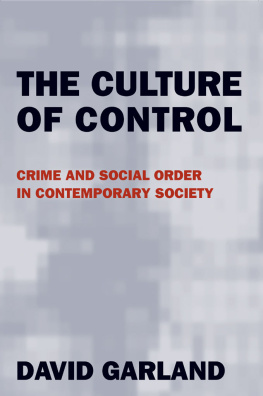
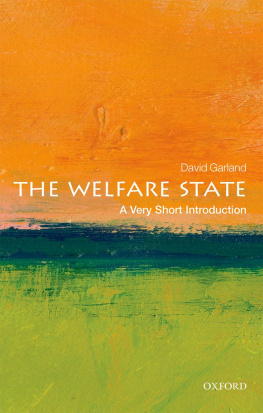

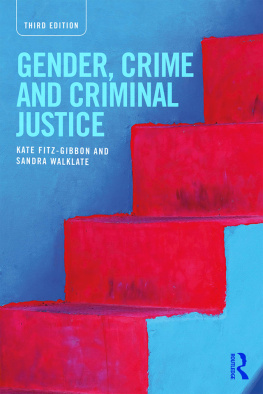
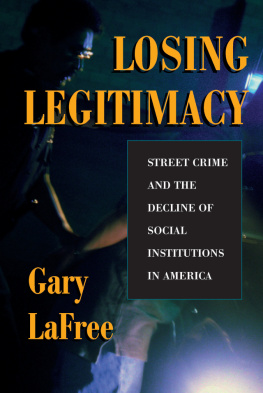
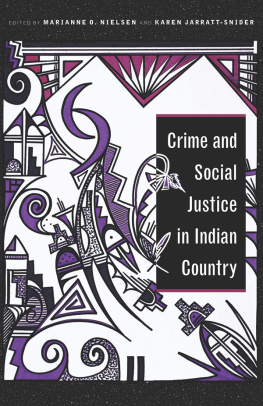
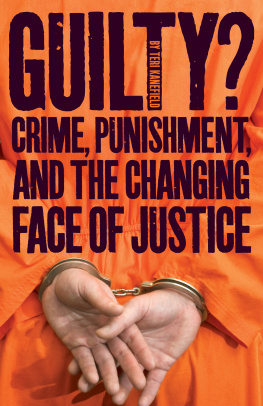
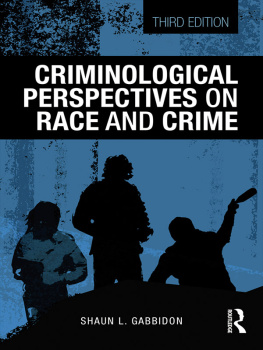
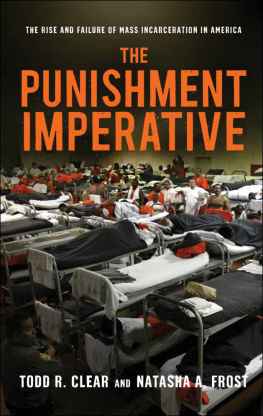
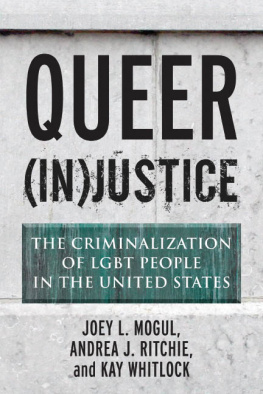
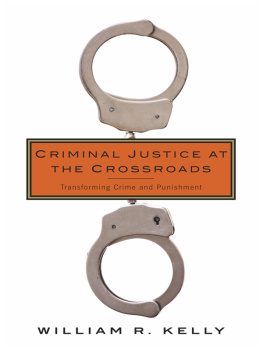
 This paper meets the requirements of ANSI/NISO Z39.48-1992 (Permanence of Paper).
This paper meets the requirements of ANSI/NISO Z39.48-1992 (Permanence of Paper).